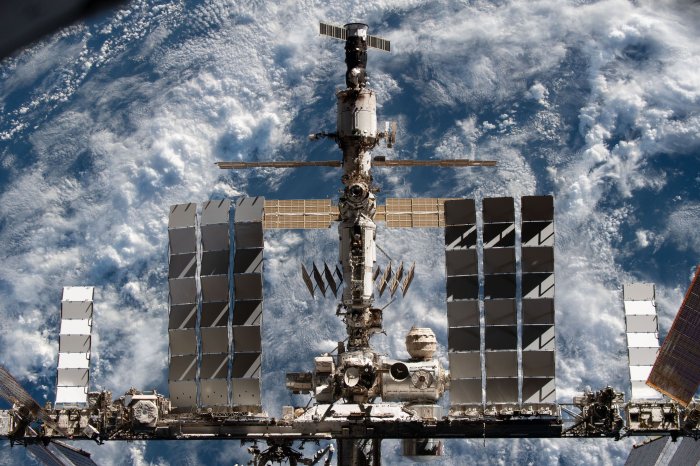1 of 3 | Peter Beck, founder and CEO of Long Beach, Calif.-based Rocket Lab, stands in front of a model of a fairing, or nose cone, for the company's planned Neutron rocket. Photo courtesy of Rocket Lab
March 2 (UPI) -- California-based Rocket Lab, which has sent rockets into space 17 times using its small Electron vehicle, plans to launch a much bigger rocket called Neutron by 2024.
As part of Rocket Lab's effort to raise funds for Neutron, it plans a public listing on the Nasdaq stock exchange by the end of June.
Rocket Lab is confident it will succeed, but humble enough to adapt and offer new products, founder and CEO Peter Beck said in an interview.
"If we see market opportunities, then we will go after them. And don't get me wrong. ... Electron is still an incredibly important tool. We're not abandoning the small satellite market," Beck said.
Neutron would be more than twice as high as its smaller predecessor. It would stand 131 feet tall and be capable of lifting about 20,000 pounds (or 8 metric tons) into low-Earth orbit, while Electron can carry only about 660 pounds.
By comparison, SpaceX's Falcon 9 rocket is nearly 230 feet high and takes more than 50,000 pounds to orbit.
Rocket Lab intends to pursue launch customers that are deploying large numbers of satellites, or so-called mega-constellations, but it declined to name any.
The new rocket would be "tailored for mega-constellation deployment, interplanetary missions and human spaceflight," the company said.
Beck, a New Zealand native, saw Rocket Lab through its infancy in a few short years to its first launch in 2017. Most of its launches have been from New Zealand, but the company has prepared a launch pad at Wallops Island, Va., for more missions.
The firm now is the second-most frequent U.S. launch company after SpaceX.
Neutron will be designed for NASA human certification to launch people, but there are no immediate plans for that, Beck said. He said he's confident that more human spaceflight will happen, and Neutron can support such missions.
Rocket Lab has experimented with the Electron rocket to make it reusable by catching the its first-stage booster with a helicopter and a grappling hook mid-air. But Neutron would have propulsive engine landing capability, similar to SpaceX's Falcon 9, Beck said.
In some ways, Rocket Lab is following a business model pioneered by SpaceX, which started with a small Falcon 1 rocket launching into orbit in 2008. But SpaceX quickly moved on to the much larger Falcon 9 rocket.
Rocket Lab would be listed under the Nasdaq ticker of RKLB if all goes well with its application to the U.S. Securities and Exchange Commission.
The company intends to be listed publicly after a transaction that creates as a "special purpose acquisition company" in which it avoids the usual public offering process. The financial deal places the company's value at roughly $4 billion.
Beck said taking the company public will provide the financing needed to develop a new rocket.
"Being a publicly traded entity will give us access to the capital we need to grow. It is by far the best approach for us," he said.
Rocket Lab is pursuing such a scale-up, said Phil Smith, space industry analyst at Alexandria, Va.-based Bryce Space and Technology.
"What we're seeing now is launch systems being built much less expensively," Smith said. "SpaceX abandoned Falcon 1 to build a much bigger rocket, and Rocket Lab is doing something similar now, although not abandoning Electron yet."
"SpaceX and Rocket Lab both got to the launch pad ahead of many competitors, and that helped them a lot. But they have to stay nimble and keep up with changing markets," he said.
The Neutron rocket's lift capacity is roughly similar to the Russian Soyuz rocket, which is the most-launched rocket in history, said Scott Manley, a California-based software engineer and science communicator.
"Rocket Lab is the only other launch provider beside SpaceX that's made any progress on reusability, so the flight and engineering experience they have with Electron will probably help them a lot for Neutron," Manley said.
The International Space Station is pictured from the SpaceX Crew Dragon Endeavour during a flyaround of the orbiting lab that took place following its undocking from the Harmony module’s space-facing port on November 8. Photo courtesy of NASA
















